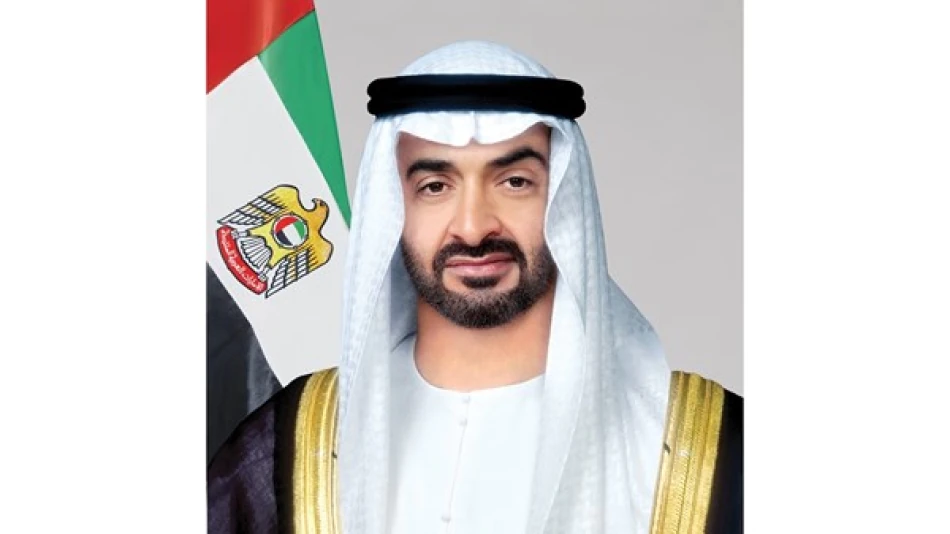
Emirati Teams Join Albania's Forest Fire Fight at President's Command
UAE Deploys Emergency Fire-Fighting Mission to Albania as Diplomatic Soft Power Takes Flight
The United Arab Emirates has dispatched specialized fire-fighting teams, aircraft, and equipment to Albania's capital Tirana to combat unprecedented wildfires ravaging the Balkan nation. The emergency response mission, ordered directly by President Sheikh Mohammed bin Zayed Al Nahyan, represents a strategic extension of UAE's humanitarian diplomacy into southeastern Europe—a region where Gulf states are increasingly seeking influence.
Multi-Agency Response Reflects UAE's Institutional Maturity
The operation involves coordination between three key UAE ministries: Foreign Affairs, Defense, and Interior, with Abu Dhabi's Civil Defense Authority leading technical implementation. This multi-agency approach demonstrates the Emirates' evolved capacity for rapid international crisis response, moving beyond traditional oil-wealth donations to sophisticated logistical interventions.
The deployment includes specialized aircraft and advanced fire-suppression materials—capabilities that position the UAE alongside established players like the European Union's Emergency Response Coordination Centre and neighboring countries' mutual aid frameworks.
Strategic Timing in the Western Balkans
Albania's wildfire crisis comes as the country pursues EU membership while managing complex regional relationships. The UAE's swift response fills a critical gap where European resources may be stretched thin across multiple summer fire seasons from Greece to Portugal.
Expanding Gulf Influence in Southeast Europe
This mission follows a broader pattern of UAE engagement in the Balkans, including infrastructure investments and diplomatic initiatives across Serbia, Montenegro, and Bosnia. Unlike China's Belt and Road projects or Russia's energy leverage, the UAE is building influence through crisis response and humanitarian assistance—a softer but potentially more sustainable approach.
What This Means for Regional Dynamics
For Albania, the UAE assistance provides immediate relief while diversifying its international partnerships beyond traditional European and American allies. The timing is particularly significant as Albania seeks to demonstrate its worthiness for EU integration while maintaining flexibility in foreign relations.
From the UAE perspective, this deployment showcases military and civilian capabilities that could prove valuable in future Middle Eastern or international crises. The experience gained in European fire-fighting operations may enhance the Emirates' domestic preparedness for climate-related emergencies.
Climate Diplomacy as Foreign Policy Tool
As extreme weather events increase globally, countries with advanced emergency response capabilities gain diplomatic leverage. The UAE's investment in such capabilities—demonstrated from Yemen humanitarian operations to now Albanian fire-fighting—positions it as a reliable partner for crisis-prone nations worldwide.
This approach contrasts sharply with traditional Gulf foreign policy focused on energy exports and religious influence, suggesting a more pragmatic, capability-based diplomacy suited to an era of climate volatility and geopolitical uncertainty.
Most Viewed News

 Layla Al Mansoori
Layla Al Mansoori






